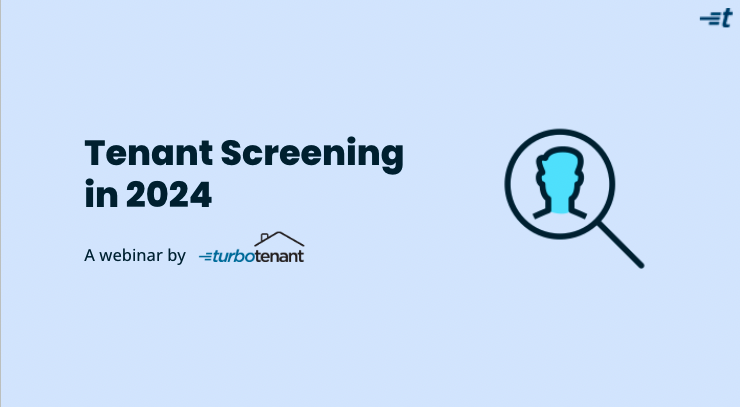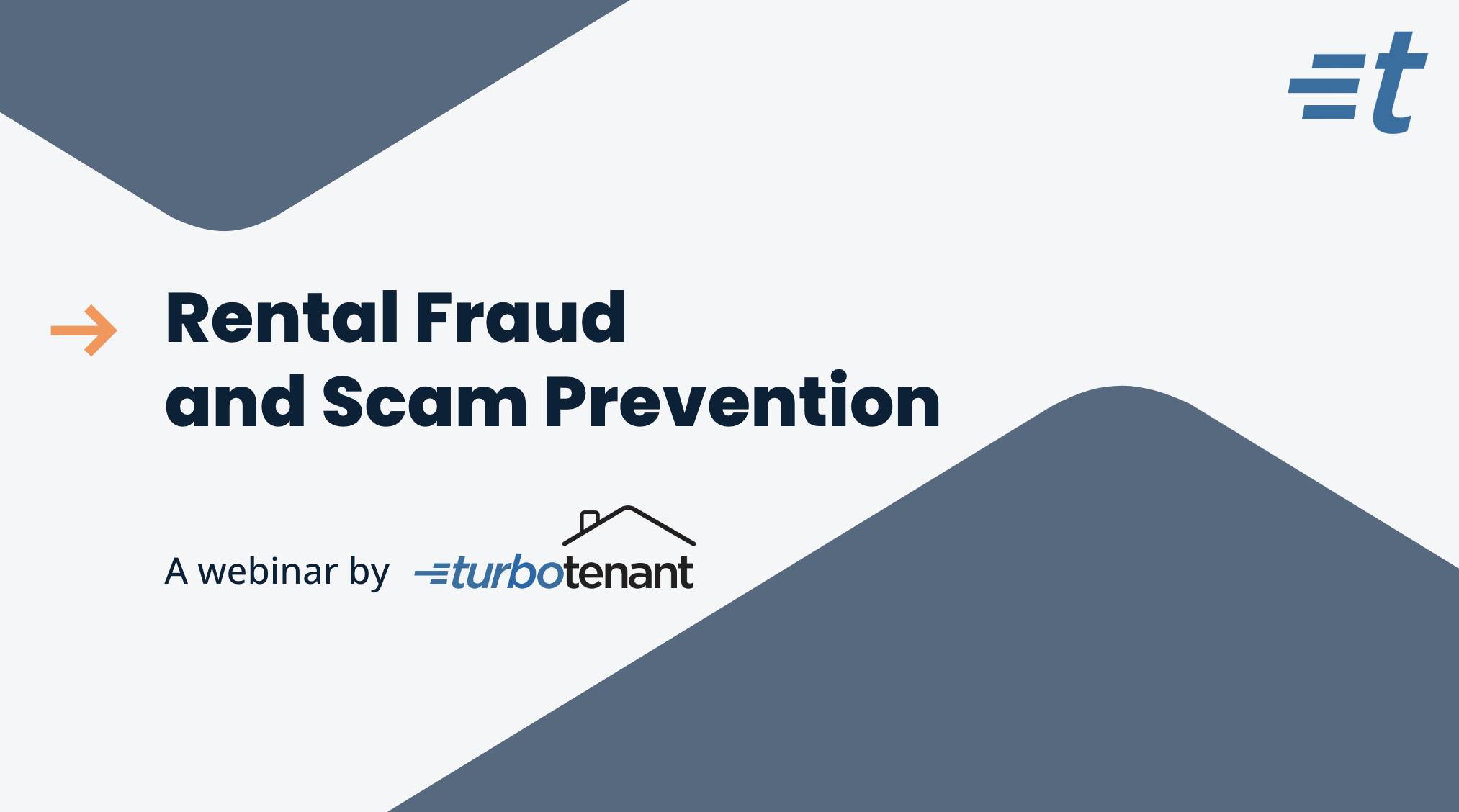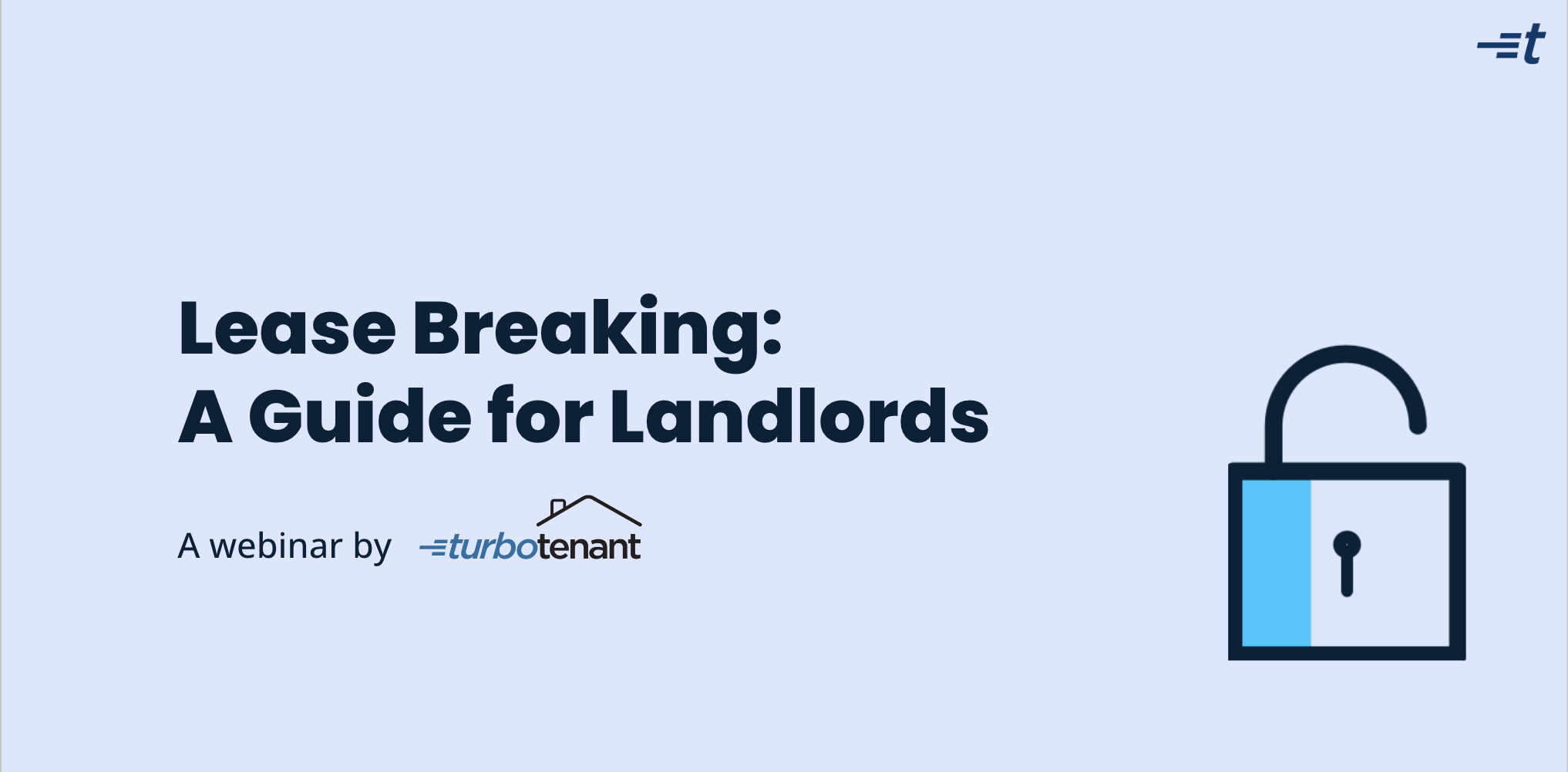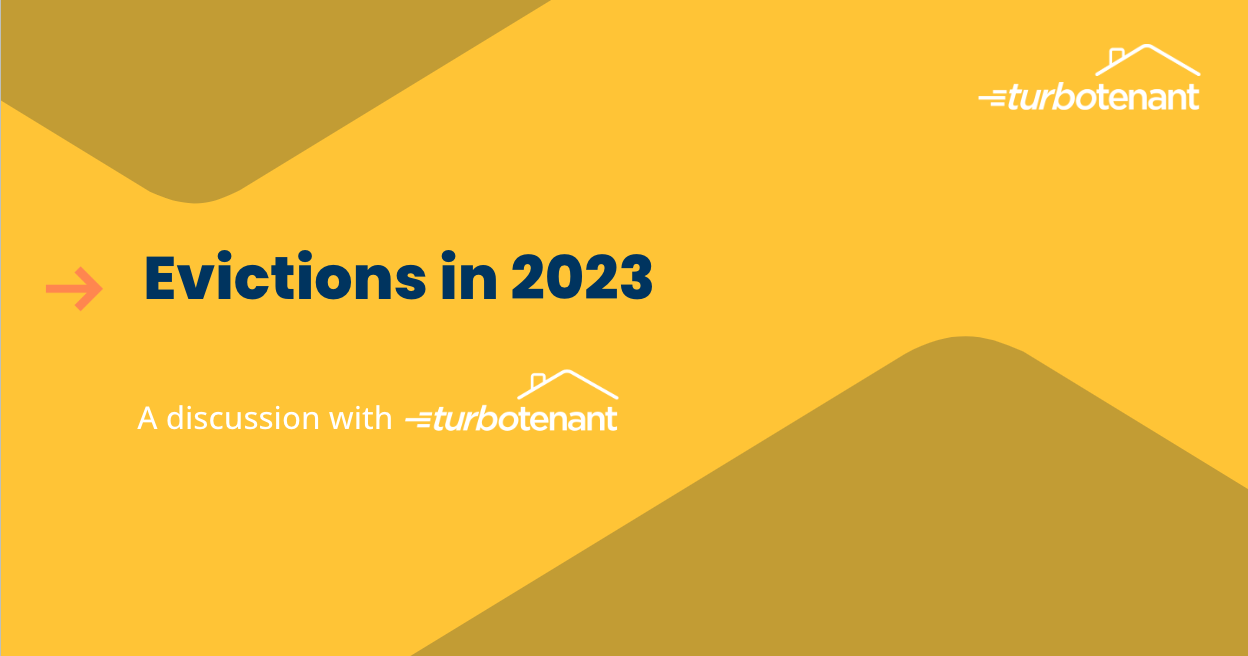Self-Directed IRAs Webinar
Brendan Walsh from Rocket Dollar answers your self-directed IRA questions, including:
- How to access alternative retirement options
- The most effective way to retain rental investment tax benefits
- Prohibited transactions that could wreck your future funds
Key Takeaways
- Understanding Self-Directed IRAs: Self-directed IRAs allow individuals to invest in alternative assets, such as real estate, while retaining the tax benefits of a traditional or Roth IRA. This webinar provides a comprehensive overview of how self-directed IRAs work and their advantages for real estate investors.
- Types of Self-Directed IRAs: The webinar covers various types of self-directed IRAs, including traditional, Roth, and solo 401(k) plans. Each type has its own unique features, contribution limits, and tax implications, which are essential for investors to understand when choosing the right account for their needs.
- Checkbook Control and Direct Custody: Rocket Dollar offers two main types of self-directed IRAs: direct custody and checkbook control. The checkbook control option, available with their gold account, allows investors to have more control over their transactions and enables faster deal-making, which is particularly advantageous for active real estate investors.
- Prohibited Transactions and Disqualified Persons: The webinar emphasizes the importance of understanding prohibited transactions and disqualified persons when using a self-directed IRA for real estate investing. Engaging in prohibited transactions, such as self-dealing or renting to disqualified persons, can result in severe tax consequences and even the distribution of the entire IRA.
- Financing and UBTI: When using a self-directed IRA for real estate investing, investors must be aware of the limitations on financing and the potential for Unrelated Business Taxable Income (UBTI). The webinar touches on these topics and encourages investors to consult with Rocket Dollar’s team for more detailed guidance on navigating these complex issues.
Transcript ▼
Brendan Walsh:
Welcome, everyone. Thank you, TurboTenant, for hosting us today. So Rocket Dollar is a self-directed investing platform. What that does is it allows people to unlock their IRAs in 401k, keep the tax benefits, and make investments into private and alternative investments, like real estate. So a lot of people think of self-directed IRA. Their first thought is, I have a lot of fidelity or Schwab or Vanguard, and I do my own stocks. But in our side of the industry, this really refers to people going a step further and self-managing their own real estate investments or other private investments. So we’re going to get into what that means. What an IRA is, we’re going to go over a lot of the basics first. Some of you might have heard this stuff already before, but we’re really going to give a very full gambit on what a self-directed IRA or alternatives IRA is, how that can invest in real estate or other assets, and what are some of the challenges in this space that investors get very excited to come in and then they understand that there might be some different things that they weren’t aware of. So this is going to be a pretty interactive webinar today.
I’m going to keep trucking through a bunch of slides, but we have some polls. And Tristan is also in the Q &A. He’ll answer our sales phone. So he can help answer a lot of basic questions.
If there’s a really good question, we’ll try and bring it up live in the webinar where we can. All right, so a little bit about myself. I’m Brendan Walsh. I started as, you know, I was a financial advisor in Chicago. I really said, hey, I want to move to the more tech side of the industry. So I left the financial advisor side. I decided I wanted to make a career move and I came down to Austin, Texas, where a rocket dollar is based. So before that, I was working with a lot of people individually as a financial, a licensed financial advisor. And then I was also working with 401k plans.
So, you know, plans of 30 to 50 or 20 people a lot of times, making sure the employees were educated on that. At Rocket Dollar, I do sales and partnerships. And then I also do educational webinars like this. So we have a webinar series of our own. We have a YouTube channel. Really excited to work with Krista today. Very professional.
We do a lot of webinars and Krista has been great. So you can get hands. So I’m going to start off super basic. What is an IRA or individual retirement account? These were created in the 1970s. There’s this law called ERISA, employer retirement income security act.
I don’t remember the exact right now off the top of my head. But just so you know, these didn’t exist forever in America. They were created as a response to pensions going away. So IRAs are tied to an individual, not a company. So as pensions have gotten less popular, and you know, some people might be self-employed or go somewhere else where they don’t have a 401k anymore.
You know, maybe you haven’t worked in the job in 30 years. They want it. The government wanted something where you can take that retirement money for you and retain all the tax benefits. A common misconception is that, you know, you can only have one IRA or only two, a traditional or Roth. You can have as many IRAs as you need. So we have clients that have, you know, four traditional IRAs. They have like one at Vanguard, one at Fidelity, and they have one with us. Even if you have a 401k, you can still have an IRA. You can even contribute to both of them in the same year. Now, there are some limitations to how much you can contribute.
I’ll go over it, you know, in a bit here. You know, some people ask this, you know, they are maybe a green card or exploring citizenship in the United States. You can still have an IRA as long as you have US-based income. So plenty of people that will come work here, might not be a citizen yet, can actually have an IRA and will sometimes retain that even after they go back to another country. IRAs only let you contribute a certain amount of money per year. This is between all your IRAs. So remember I said, you know, some people have like five or six IRAs. That person with six IRAs still has to follow the contribution limits.
So these are numbers, usually a lot of people know they have some grass, but they don’t always understand like how they’re impacted by them. So, you know, in 2023, the average person can put $6,500 into an IRA for retirement contribution. Yeah, you’ll put that in a TurboTax, you’ll contribute, and you might see the amount you’re paying in taxes go down.
If you’re over 50, you can put a little bit more. These contribution limits change pretty much every year. So they’re going to go up for 2024.
You know, the federal government and the IRS is responding to people’s requests about inflation, said, hey, I should be able to put it a little bit more because of expenses in retirement and possible inflation. So those have increased. Sometimes they’ll stay the same for five, six years at a time. So if you’re watching this recording, you know, two or three years from now, please do check the future years.
They could be plenty different in 2025 or 2026. And I will also talk about IRA rollovers and transfers later. So some people will acquire, you know, they’ll work it up 401k or they’ll have an IRA that will be like $50,000. Then they’ll say, hey, Brendan, I’d love to send this IRA to rock a dollar, but I see this restriction that says $7,000. I want to do, I want to put $50,000. I want to put $100,000 in real estate. If that money is already in our retirement plan, you do not have to worry about these contribution limits. You can typically move the whole IRA over.
All right. So what is a self-directed IRA or alternative IRA? I kind of mentioned a little bit of the beginning as a precursor, but this is the ability, an IRA to send your money just to any IRS allowed asset. So because stocks and bonds have been very popular and there’s a lot of great companies that do stocks and bonds, a lot of people have the misconception that IRAs cannot invest in real estate.
That is not true. In the 1970s, that law that I mentioned that when IRAs were created, the government did not prohibit most investments. They gave a very open guidebook and said, you can do almost any type of investment in an IRA. What happened is that the New York Stock Exchange, mutual funds, ETFs, ever, a lot of people are big front of Vanguard and their low fees that they brought down fees over time. The most popular investment opportunities have gotten a lot of support.
So stocks and bonds got tons of support. There’s tons of companies and name brands people know every day that service these. Our side of the industry has been a bit neglected. That’s why Rocket Dollar was founded. We wanted to better serve this alternative side of retirement.
So we call it bring your own deal. This is an investment that you are allowed to do in an IRA, but it’s not really sourced from the New York Stock Exchange or somewhere in Boston or a private equity firm on the East Coast. This might be a deal that a lot of you are real estate people. Maybe you invest in your backyards or maybe you invest in a couple of states nearby that you’re working with or maybe use property management.
You’re all the way on the other side of the country. So you can bring your own deal through Rocket Dollar account as long as it’s IRS allowed. And I’ll get into what that means. So what does this mean for my retirement account? What does a self-directed IRA or an alternative IRA?
How does it change the game? You can select almost any active or passive investment and avoid capital gains tax. So some people ask, hey, my real estate is pretty tax efficient, depreciation, all this other stuff I do with my CPA. Why would I bother to do this in an IRA? Well, with our accounts, there’s no capital gains tax. So some investors will do like a depreciation heavy properties. They’ll just go do that through their taxable stuff.
They won’t use us. But if they have a property where they could expect a big capital gain in a couple of years, they get very excited to do that with us because capital gains taxes can be pretty expensive, especially at Pugh’s Cell for a big gain. You can also access alternative markets that move differently than the stock market. Some people think of us, they have a stock portfolio, they have high risk, mid risk and low risk assets. They have a lot of S &P 500 that has crushed it recently. It’s always a good investment. It’d be best in the stock market. But because they are in retirement, they do not want to draw money from their stock market account when stock market is down. So they’ll look for stuff like real estate that has a consistent payout or something so they can draw from both strategies and they can have flexibility. As long as the investment is legally named in the IRA, you can retain the tax benefits. So we can talk about this as kind of the specific thing, but a lot of people will say, well, I had a property five years ago. It’s going to have a big tax gain. I’d love to throw that in my IRA. Well, you can’t exactly do that.
That’s not allowed. But if you start off from the beginning and put this investment completely in your IRA from the very first day you buy it, that IRA can protect the tax benefits. So it’s important if you have a deal you’re excited about and you want to consider it through a self-directed IRA, do this at the beginning.
Do not think about it like six months after you’ve done it. If you kind of missed the boat on a certain investment in real estate property, maybe it’s good to repeat that strategy next time. And that’s where you prefer the self-directed IRA. You’re all ready to go and then you buy it from the IRA right from the beginning.
All right. So what other stocks and bonds can an IRA access? So these are some popular investments from our clients.
As I said, the law doesn’t really prohibit. So real estate, private equity, venture capital and startup stock before it goes to the stock exchange. So like SpaceX stock or something like that, we have a lot of people asking about different stocks. Cryptocurrency, Bitcoin, Ethereum, any cryptocurrency, almost anything. Farmlands, oil and gas, green energy, solar projects for the real estate people in here.
Private lending. So we have plenty of real estate clients. They might not be able to afford property in their IRA, but they can lend $50,000 or $100,000 to a real estate project. So they will lend out that money and then the proceeds come back tax protected inside of the IRA.
Precious metals like gold, silver and palladium. Popular with some. Some young people are not about it.
They’re like, I’m a crypto person. So it’s only if you’re interested in that. And really all us anything allowed by the IRS. So some people ask us like, how big is the list? The list is really a small blacklist.
It is not a white list. So the list kind of ever expands as new investments become available. So when Bitcoin was first invented and even no one knew what it was, someone could try and invest it at the next day in an IRA.
Or if there’s some new type of real estate vehicle that we’re not familiar with yet, but comes out in 2025, you can invest in an IRA. All right. So we’re going to have a poll pause here. Christa, I’ll let you take over. Wonderful.
Krista Reuther:
So we are going to go ahead and just check in here with the previous experience. Have you ever used a self-directed or alternative IRA before? Let us know.
Brendan Walsh:
And the reason that I say, you know, this is not just for stocks and bonds is if you’re managing your own stocks and bonds right now, that’s great for you. But this is something different. So all right, we have the poll is ever moving, but it’s about 20-ish, 22% have used it before, about 80% have not. So great. We’re going to get on educate life people on today. Beautiful. Give me a second.
I’m going to quickly look at the Q &A. I might not be answering all of these, but I’m going to just take a quick peek at it. Teresa asks, does it matter if the property is in your LLC or your personal name? So typically the property would have to be in the name of the IRA at a bare minimum or an LLC that the IRA invested. So the property, Teresa, could not be in your personal name. That’s the only thing that’s not allowed. So we can talk about that over our sales phone, but the reason for that is it has to be clear to the IRS that your IRA owns the property, not you, because if the IRS thinks that you do, they’re going to be like, Teresa, why have you not been paying taxes on this?
Yeah. So Teresa also asks, when you sell the property in an IRA, will you have to pay income taxes or capital gains? So that will depend, Teresa, if you have a traditional IRA or Roth IRA, which we’re going to get into, and there’s no capital gains tax in either of those accounts.
Traditional IRAs eventually do have to pay ordinary income taxes, but they don’t usually pay them until someone’s in their 60s or 70s or 80s. So you can really push off that tax obligation to a lot later. With a Roth IRA, you are never paying taxes.
The Roth IRA does have some other downsides where you pay taxes earlier, but I can get it too later. All right. Good question, Ashley. Can you lend private equity or lending to yourself? So no, you cannot. There are some rules that the IRS has against this. With a 401k, you can actually do a loan to yourself and do whatever you would like with it. So that is a common reason for people to explore our solar 401k. Where and what companies have self-directed IRAs?
I think this is a good thing about the industry itself. So Fidelity and Schwab don’t really offer a self-directed IRA. They used to for clients that were very high net worth, and they just kept raising the bar for clients. So Fidelity and Schwab used to handle people that had 1 million and above. They would deal with this and let you do that. Eventually, they said, well, no one has to be 5 million. And then eventually they said, you know what, we’re going to shutter this whole department. And it wasn’t anything animosity to those clients.
It was just look. Fidelity and Schwab have a very focused business on stocks bonds, ETFs, and mutual funds. That’s what they’re good at. That’s what they know how to make money and be productive about for themselves. And that’s what they can be very fee competitive at.
Eventually, they just decided, hey, these departments just don’t jive with our greater team. They’re really small. They cost a lot. So there’s trust companies and banks across the country have self-directed IRAs. We have a lot of regional competitors. Pacific Premier, they used to be called Pensco, Millennium Trust Company, Altow IRAs, and other competitor bars. I don’t want to keep mentioning competitors, but most people have not heard of these names. There are a smaller or regional players that compete in this space. And Rocket Dollar was founded because we thought we really had to raise the game. And some of our competitors, we feel are very good companies. Some people come to into them and they’re used to Fidelity and Schwab, and they feel like it’s really sloppy or unorganized. So there are a lot of companies that offer this.
You’re not going to recognize all their brand names. All right, Chris, I’m probably going to move on. I was a good little break in the Q &A.
Beautiful. All right. So what can you not invest in?
These are the things you can’t do. Escorp stock. It’s a complex taxation issue, but if you’re used to an Escorp, they have a very special tax status. So the IRS says, hey, we still want to make sure we get our pay taxes on this thing. We want to let you invest in an IRA and we want you to retire very well, but we have to make sure we don’t let all corporations completely avoid tax. They don’t allow you to invest in insurance. So there’s very small exceptions to this. Some people will buy life insurance settlements, but you can’t invest in any of your own insurance.
A lot of insurance already has some other tax advantages that you can check out. So you can’t double dip. Collectibles.
So I have a bunch of examples here because this just makes it very easy to understand. Collectible is a show-off asset. It’s not like a real estate property, which has a real estate property. It might be look pretty and all that, but as a very pure financial or value as a property itself, classic cars, baseball cards, artwork, direct ownership of that, jewelry, crypto NFTs with some people, these are things that only have value because they’re desirable.
They don’t have any financial asset value. So if the community suddenly went away and said, that thing’s not cool anymore, its value would immediately crash. And the IRS just doesn’t want people to mess with this because some of these markets are kind of niche and someone can easily mess with the classic car market. So if you buy a Corvette near IRA, you can manipulate that price very quickly. What are the different types of alternative IRAs? So the tax rules here are pretty much all the same as what people call normal IRAs. So a lot of people, as said, Brendan, are the tax rules totally different for alternatives IRAs and real estate IRAs?
The tax rules are actually exactly the same for your stocks and bonds IRA and an IRA investing in real estate. However, a few kind of obscure tax rules or stocks do pop up more frequently in these types of IRAs. So most common is a traditional IRA and a Roth IRA. About 70% of rocket dollar clients have a traditional IRA. We get by far more questions about Roths. So traditional IRAs are free tax, meaning you’re delaying your tax until retirement.
A Roth IRA is post tax. You’ve already taken care of your tax obligation. And then you’re not going to pay taxes in retirement. So you have less to start with, but you have a much longer term play with no taxes at the end. I’m not going to go super deep into all these just to keep moving, but less common one is a SEP IRA, which is similar to our Solopro 1K. These work great for self-employed individuals.
We do offer both of them if you need them. Inherited IRAs have received some tax changes. Some people call these stretch IRAs. A minor IRA. We do not actually offer that for a minor individual, but we can do a Roth IRA for a minor. So most of our clients with a child that’s working as a first job, they’ll do a Roth IRA. What do all these IRAs have in common? They have no capital gains tax, which we mentioned.
They have some type of tax deferral or tax protection mechanism. In an alternative IRA, we do not have a brokerage account service. So we have Explored a brokerage account service to add that for our clients, but that’s really not our main business. Our main business is helping people invest in real estate and other assets like you’re interested in. The stocks and bonds are brokerage.
That’s just going to support our clients. We’re never going to compete with Vanguard and Fidelity and that. So what type of IRAs do people use the most? A traditional IRA is very popular because it properly connects to most 401ks. Your 401k is usually pre-tax.
If you have not talked to HR and tried to pick something particular, it’s almost always pre-tax. That’s where you most likely have the most retirement funds already. A Roth IRA is tax-free after five years. It’s able to take advantage of current lower tax rates historically.
You make a short-term sacrifice for a long-term gain. Talk to your CPA and tax advisor about that. Don’t take any financial tax advice from me. Roths are always available. Someone said, I checked your website and said in an IRA, I don’t see anything about Roth. We have a Roth. I don’t know why people think this, but we do.
And Kristin, I’m just going to keep moving because we got a lot of content to get through. What is self-directed solo 401k? The solo 401k is for a self-employed individual. You must have earned self-employment income. I’m going to add that to the slide there, but you need self-employment income.
Some people ask what that is. You probably have to talk to your tax advisor about that, but it’s not just rental income. It’s some type of manager or salary. Typically, a CPA can help you get that if you don’t have it.
We can talk about it over the fall line and your CPA can help you there. The contribution limits are significantly higher than an IRA. A lot of people are like, whoa, that’s way more. $66,000, $69,000. How is this so much higher?
This is the federal government’s response to step in. Some people just do private real estate. They don’t have a big corporation they work for. And they say, hey, government, why can they contribute over $50,000, over $60,000 to their big corporate 401k plan?
I can only do $7,000 in an IRA. This is the answer for that. A lot of our real estate people use this account. You can also take a loan out and do it for yourself.
Again, I know I’m moving fast with a lot of this, but call our sales line. If you want to talk for 30, 40 minutes about this, we can do that and really make sure you understand these concepts. This is an introduction to this.
Our knowledge base can go deeper into this stuff. You can do free tax, post tax Roth, and after tax contributions. In the rocket dollar solo 401k, you can do both what people call our traditional or Roth contributions. Some people say, hey, I want a Roth 401k. You could have a Roth 401k and a pre-tax 401k at the same time in the same account. It also has some checkbook IRA-like abilities, which I’m going to get into what that means in a little bit.
That’s a very important thing for all your real estate people out there. Remember that term, checkbook IRA. I talked about the tax status of a self-directed IRA, and I tried to get through all that really quick because I know you can look for that a lot of other places online. I’m going to slow down a little bit here about different types of alternatives IRAs.
There’s two major ways to do these types of investments and to invest in real estate. We call a direct custody IRA and a checkbook IRA. The checkbook IRA tends to be a bit more complex. Most people tend to be more familiar or wrap their heads around a direct custody IRA first. Our direct custody IRA is our cheapest and easiest to open on the rocket dollar website. You open an account, you can then fund it from a transfer from another IRA, and then you can go invest with it. This is a relatively similar path to a fidelity Schwab, a bad guard that people are used to. The only thing they have trouble wrapping their heads around is, well, rocket dollars not connected to my real estate property or the syndication I’m doing.
How do I get to it? For every investment, our trust company, our custodian, will review the investment documents, make sure are you allowed to do that. They don’t take all liability, but they just do a basic check, say, are you allowed as this past the basic IRS rules, and you go do this. Once that investment is approved in the custodian, as the custodian is fine accepting it, then they will allow a wire, a check, or an ACH to go out to that investment. This type of direct custody IRA is very popular with syndications, limited partnerships, private companies. I saw on the previous survey a bunch of people, most of the people are single property investors, but there’s a lot of people that do these investments too. If you’re mostly going to focus on stuff that’s not individual properties or someone else is totally managing everything, like you’re not even a property manager, you’re just saying, hey, five people are investing in a property, I’m totally passive, I don’t even manage anything. This IRA will work just fine for you.
It’s a great starting point and place to get started. Okay, now a difference of a checkbook IRA. This is a more complex structure, but it’s very, very favored by real estate investors.
And this audience, that’s why I was very excited to do this webinar, because this is a more complex topic, but all real estate investors that handle individual properties ask so many questions about this account. They love it. And there’s a reason why. So this structure is a bit different because it is a little bit cleaner to manage one or multiple properties. It has at the bottom here, an IRA, it has a rocket dollar created trust just for you. So you are the trustee of this trust. And then it has a bank account. So the bank account is connected to the trust, you are in full control of this bank account. So unlike the previous IRA, where you have to check with a custodian, we probably need 48 to 72 hours to approve every transaction. These real estate investors can send funds to the real estate properties immediately.
They can send a wire, they can cut a check, they can send an ACH or a bill pay, they could pay taxes to a local, you know, your local county or wherever you need to pay them. So real estate has so many more transactions, individual properties have so many more transactions of rent checks, taxes, maintenance, paying people, Airbnb people to clean the property, that having a, what people call a checkbook bank account enables a lot of freedom and flexibility to move quicker. So this account for the IRA is only available at our gold price level. We have a lot to support this account, but once you learn how to use this account, it’s very, very powerful to handle one, two, three or multiple properties. And just because it says checkbook, that doesn’t mean a wire or an ACH is not available to you. A lot of people use checks in real estate, but you know, we’re moving to be more advanced.
So yes, plenty of wires, not even that advanced honestly, but you can do any of those payment methods that you need, whatever works for you. A key thing to remember, this is longer to set up. We need time.
We need at least minimum two weeks. I would much rather for your own sanity, if you’re interested in this, we have a 30 day refund policy, we can pretty much refund almost the whole thing. We have to burn some money on the trust we created for you, you spin it down, maybe, maybe, you know, $30 to $50, we can’t refund, but we can refund almost all of it. It is much better to set this account up three to four weeks ahead of time. Be calm, get it ready, understand what’s going on, and then you buy and close on your property. If you call us, you say, Britt and Tristan, I got a property closing next week and I’m really freaking out.
I want to do a checkbook diary. It’s going to be, you’re going to be miserable. We’re going to be miserable.
It might not happen. Your closing party is going to be miserable. However, if you set it up a month ahead of time, so easy, the closing happens. You cut a big check. If you’re doing a big wire, we’ll just get your wire limit up to if it’s a very big wire, you can send that wire.
Everyone’s happy. Now, it’s different compared to the direct custody IRA. Let’s say you have a paperwork issue or someone doesn’t get you the right paperwork. They can’t send the funds to the close of the property until all the paperwork is immaculate. For some people, it’s not that big of a challenge. For most investors in a frenzied, hurried state at the end of closing, that’s really stressful.
The management of the account is also easier going forward in that you can continue to send money. A contractor is redoing your bathroom. They need $10,000 to start the renovation project. The contractor tells you, if you don’t give me the money in the next three days, I have five other jobs.
I’m moving out and you’re not going to get me for two more months. With this account, you could send a wire or cut the check to the contractor and to them in person. They’re paid.
They’re going to start working on your property. Tristan, do your best. I’m sure the Q &A is blowing up right now. But I can also email after I get more questions about this. I am going to do a very quick phone time check.
Yeah, I can’t do many big questions. The checkbook IRA is significantly more expensive, has been asked. The direct custody IRA is available at our silver price level, which is $360 and then $15 a month. That is a pretty cost competitive offering out there. Our checkbook IRA is $600 to open and then it’s $30 a month.
That is flat fee, no matter how many properties you have, no matter how many transactions that you have. Some people, understandably, if they have a small IRA, they say, hey, the gold, it’s not right for me. I don’t want to buy the gold in the checkbook IRA. But if you have a large IRA and you’re trying to do multiple transactions, it’s very cost-competitive. A lot of our competitors do not have flat fees.
They will charge per assets or per transactions. You do a lot of real estate that nickel and diming can add up real fast. If you have a larger IRA, that could add up pretty fast. All right, 1031 exchange, not possible through an IRA because 1031 exchanges are already tax advantaged. So do your 1031s elsewhere. Do this with a brand new fresh property inside of your IRA.
Very common question. Can I charge 10% of the, can I charge, if I manage my own self-directed IRA property, can I charge my normal 10% management fee? No, you cannot pay yourself out of one of these IRAs. I’m going to get into the prohibited transactions. So you have to be completely passive or you have to be like a paper pusher. You cannot work on these properties. You cannot pay yourself on these properties. You could only maybe at best sit in the Airbnb portal and maybe approve guests because you’re not there or approving contracts and stuff like that.
So you can make decisions about your property, but you cannot be a free employee or work at your property. All right, you got to keep moving. Please email questions after.
We’ll give you an email where you can send them. Okay, so a solo for 1K. I mentioned it earlier. This is a very powerful account for plenty of people doing real estate because it also has checkbook control. We can create an IRS pre-approved plan document. We establish a retirement trust. And this is the solo for 1K I mentioned before that can do about over almost $60,000 in contributions or more per year. You can do a pre-tax contributions. You can also do post-tax Roth contributions through the same account. So typically our investors, they might tell us, look, Brendan, I only want to do Roth. So we’ll only open one bank account for them.
However, sometimes they’re like, I want to do both. So they’ll actually have two bank accounts in there. And as long as they are properly accounting for their pre-tax and the Roth contributions, they could invest that into a real estate property. They could do like a 70, 30 split Roth and pre-tax. So as long as the red checks come back as 30% Roth for the proceeds, it is fine to do both at the same time. And you have that same checkbook control ability with the right of the checks, sending the bank, wire stuff like that. This account is available at our silver price level for $360.15 a month.
That is a rocking deal. You’ll probably be a bit intimidated if you’ve never looked at this account before, but learning it is an amazing retirement benefit for you in the long run with how much you can contribute, especially if you do not have a corporate plan. If you do not have a corporate plan, you need to be looking at this kind of account. We can educate you on it. So again, I’ve talked about this, about checkbook control, but a few things about it. Some people will use an LLC instead of a trust here. We have done that at Rocket Dollar in the past.
It is plenty fine. A lot of places will make you go and find your own LLC or trust and make you find your own bank account. That’s really hard. Creating an LLC, not that hard for most of you. You probably, a lot of you have probably tried to create an LLC or have a couple already.
Finding a bank, if you start talking about a self-directed IRA to a bank, the bank’s going to be like, whoa, whoa, whoa, I don’t know what this is. We’re going to get compliance in here. You’re under a special compliance review.
And then three months later, you’re pulling your hair out. So we help create the whole structure for you. Our fee is meant to give you the whole package. We do not send you off into somewhere else where you don’t know what’s going on. And we have a relationship with a partner bank where we have some basic reporting. So we can help you as best we can over there. We can’t do every single thing at the bank, but we can handle most basics and bring up support issues to the bank.
So the pros. So faster transaction times once fully set up. You can handle a higher amount of transactions.
You can do this checkbook IRA structure. Yeah. The cost is it’s longer set up. It can be significantly more complicated as some of you are probably reacting. You’re like, well, Brendan, this is fast.
This is a lot of information. The most common question we get is, Brendan, I’m new to this and I don’t understand where my money is right now. Is it in my IRA? Is it in my bank account?
Is that my property? It’s different at Fidelity and Vanguard. They have a proper display that says where every all bit of your dollars is.
We keep working with our tech team to increase reporting in this space, but we cannot get a report on what your red check came in as. There’s no way for us to connect to every single platform. However, we have an API and we’re working on it. We’re trying to increase the partnerships. Okay. Just continually checking my time here.
So, all right. Investing in a self-directed IRA in real estate. What are some other popular investments that are not just individual properties? Syndications, limited partnerships, LLCs, REITs. Usually these clients, they just do a few transactions a year with us. If we do a direct custody structure, that first one, they have to get approved by the custodian.
Most people are fine with a direct custody there. Active investors, like the one that have a lot of individual properties, they’ll say, hey, I’m a land person. I’m a fix and flipper person.
I’m into rentals. They are much more interested in our checkbook one. So, sometimes people will just start off in the direct custody. They’ll get a better feel for it.
And then they’ll say, okay, I know this space better. I’m going to upgrade to the checkbook now. I’m going to take some more, bite off another bite here.
And I’m going to go with a checkbook. And I just have remain at arm’s length is important. That’s just a reminder for you can do these properties. But as I said, you cannot work on them.
So, that is a huge mental might shift for a lot of people. All right. We have a poll pause here. Chris, do we have a poll cleaned up? We do indeed.
Krista Reuther:
So, would you consider yourself to be an active or passive investor or maybe a little bit of both?
Brendan Walsh:
I think the biggest question I hear a very big difference on, Chris, as I’m on the phone asking something similar to this, is someone’s like, oh, I love to work on my properties.
And then you hear someone else be like, you won’t catch me at my property with a toolbox. That is for someone else’s job and I’m happy to offload it. We have a pretty even split here.
You have 25% say passive and then pretty equally split between both and active. All right. Great to see you. I’m probably going to let that poll keep running that I’m just going to keep moving, Chris, up for a time here.
Beautiful. All right. Pro-habited transactions.
Very important topic. These rules exist for people that invest in stocks and bonds. But if you’re investing in stocks and bonds, normally this stuff doesn’t apply to you unless you’re part of the Bezos family or the Walmart family. It’s a lot of stocks are so big that you just never trigger a rule because your ownership level is so small. But when you’re investing in real estate properties, you typically control 25% half or all of this property.
So these rules mean a lot more to you. Investing in a property that you already own. This is the biggest bummer that I have to tell a lot of people on the phone.
Brendan, Tristan, they call us. I have a property. It’s beautiful. It’s got to be really high in taxes. And I’d really like to put it in an IRA. And when did you buy it? You’re like, well, I’ve already owned it for two years.
It’s like, well, can’t do it. I asked them, what about that neighborhood? I’m like, is that neighborhood still on the up and up? Are there available properties three blocks away? You can copy paste the same strategy that you love and put it in an IRA.
You cannot mix your personal business and buy properties you already own. So it gets frustrating for some people. They say, Brendan, how do I get around this? And I have, it’s like 15 ways for me to say no.
Like it’s a lot of no’s. The IRS has thought of it. A lot of people have tried to get around it and the IRS has swatted them all and put laws and guidelines to stop you from doing that. Another one, using the property for vacations or renting to a disqualified person. I’m going to get into who that is, but the IRS, someone said on the phone, they’re like, Brendan, how would someone ever find out that me and my wife were staying in an investment property in my IRA? And the IRS just looked on Facebook. And this was not a rocket-dart client, but this was just a funny tragic story. They kept going in vacationing in their property and they posted a few nice Facebook pictures with the family of them near the beach road property.
The IRS took five minutes to look on Facebook and said, you’ve committed a major prohibited transaction. You can rent to a couple of people in the family, but you can’t rent to your kids, parents, or grandparents. I’ll show the family tree a little bit here. So you got to be careful who in the family you’re rent to.
If your family cannot understand these rules, it’s probably best to lie to them and tell them no family can stay there because if an uncle or a cousin stays there, they’re going to brag to the to your kids and your grandparents and then they’re going to say, why can’t I stay there? So performing any types of repairs, maintenance, or improvements to the property by yourself. So you should not have a hammer. It’s not good to mess with this rule. If you don’t have records of who did an improvement and it’s like, yes, your fingerprints all over it, the IRS can distribute your whole IRA. That’s the crux of these prohibited transactions. If you have an IRA of a million dollars and you make a $500 improvement to the property and you’re blatant and very wrong about it, the IRS can distribute your entire IRA and make you pay taxes on everything. When in doubt, you have to remove yourself from day-to-day operations and work with a non-disqualified person or a property management team.
So great that we’re on here with TurboTenant. It’s very frequent that people will manage a property manager or they’ll have a team of people that they work with and self-review IRA. Property management is a great way to solve this prohibited transaction. All expenses must flow between, to and from the IRA account. So someone says, Brendan, I caught a check and I accidentally threw it into my own personal account. I’m just going to throw it to my IRA. That is extremely risky and the IRS can consider that a ribbed transaction.
It is one. They can distribute your IRA. So you have to be very, very careful for that. There are, there are, is some track record of someone making a mistake and trying to write it as quickly as possible that the IRS has shown some leniency to. But not after going through TechScore and not after a ton of painful auditing and deciding, hey, we’re not going to kill your IRA.
So do not mess with this. Always use the checkbook bank account. That is why we have a bank partner and a specific separate bank account just for these transactions has to be retirement business only. So our clients will open a second bank account, but they open it only for the IRA business or an LLC attached to the IRA.
They never use their personal bank accounts. If you have further questions, we can talk over most of the basics with you on our sales line. We can answer a lot of these questions just because we know the rules. We are not lawyers. We are not tax accountants.
We know the rules really well. If it goes beyond our skills, we can recommend CPAs and attorneys that have really good specialist knowledge in this space. We can, we probably save many people a week from a prohibited transaction just because they call. Again, that does not stop all liabilities. There are still rocket dollar clients that have disregarded these rules and had a bit of transactions because they are not reading them and they are disregarding them, but simply just calling our line, making sure you understand something that could help protect yourself from one of these risks, just making sure you understand these rules. All right. So the disqualified person’s tree or who cannot stay at my vacation property in my IRA.
So the red X’s are people that are not allowed. Grandma, grandparents, parents, you, your spouse, those are the two most common people that have problems and invest in their spouse. Kids, grandchildren.
You’ll see a lot. The reason why this is, it’s all read generationally. So the IRS is very concerned about people hiding taxes in between generations, state taxes and all like that. They are not as concerned with you doing business with your aunts and uncles, siblings. Siblings is one that people are frankly shocked to find out when they learn these rules because they consider it much harder to hide the taxes than to hide the taxes with their kids. So you can do a lot of business.
You can even do business with your in-laws. Another one, some people are very excited about it. Some people say no. And I would not expect all the family to understand this again. So if you are very intimidated by this chart, you know, it doesn’t always fit into everyone’s family.
Some it’s perfect. They’re like, I do so much real estate with my brother and sister. Other times it’s like, I do all the real estate with my father and my mother.
I’m sorry, it doesn’t always fit, but that’s what the IRS has given us the guidelines and you cannot violate these rules. So the most common question we probably get is, can I invest with my spouse into the same property? You can, but it’s very complicated.
And if you mess it up, it’s a big problem. So usually, it’s best to just you buy one property on your own. Your spouse buys a property in their IRA. You are doing the same strategy, but they are completely separate on the other sides of the room. They never interact with each other. I won’t go into how you can do it with all your family.
It’s complicated. You should call our sales line or look at our knowledge base for that. All right. Another poll. I’m excited about this one. I’m curious to what you could see.
Krista Reuther:
Me too. So audience, do you physically work on your own properties? You could say, yes, yourself, or your spouse work on your properties, or no, I always hire outside help.
And we did have a question to this end in the Q &A. Tristan is answering it as well. Curious about the depths of personal reimbursement and what that looks like if you really can’t reimburse anything that you’ve purchased for the property?
Brendan Walsh:
So you cannot do any personal reimbursements, but you can do business expenses. So let’s say you hire contractors and I don’t know, the basement flooded, and they’re like, we need a generator and we also need like five lights in a pop. So maybe it’s like you’re spending $2,500 to help unflood this basement or something like that. Your IRA can pay the contractors. You could also have a debit card and go to Home Depot with the team and swipe it. They put all their equipment up and they say, hey, we need to buy $3,000 worth of equipment. You could swipe that debit card. You should really avoid transporting this stuff.
That’s another one that’s like it’s getting a gray area to dicey. They bought it at Home Depot and you just put it in your truck and drive it back. That’s not really too close, but you should always avoid doing free work. You just stay away from it as much as possible. You should pay outside help as much as possible.
So if you buy an air conditioner for your tenants because that’s making them happier and you think they’re going to resign, that is fine for you to pay for that business expense with your IRA. Great. Teresa is rock. I’m going to try and answer as much as these questions, but Teresa, you’re asking questions that everyone has. So I’m answering a lot of Teresa questions.
It’s not the favor her. It’s just I know a lot of people ask these same questions. And then Charles’ question relates to that. So Teresa asked, can you have a property of estra IRA at its seller finance? So financing has to be specialized and not a recourse. So you cannot cosine on the loan. The only thing you can do is a hard money loan or a non-recourse loan, meaning you’re not a cosider. So your personal credit, your personal assets, if anything goes wrong, the bag to the lender does not get those.
They only get the property itself. So especially now, that is really tough. Interest rates are high. A lot of our clients will invest with cash or they will do a much smaller financing than they’re used to. If they usually leverage and finance 80% of the property, they have to adjust in an IRA. They’ll buy a cheaper property.
They will finance 40% of it or something like that, and that will help them get over the hump. Charles asked, what is UBTI or unrealized business taxable income? I’m not going to go into all this because it’s a very complex topic with limited time, but this is the one area that always trips people up in real estate and can get them to pay So these accounts are almost entirely tax-free. UBTI can hit investors that invest with lots of financing. So the more financing you have, the more tax you might have to pay. If you’re paying tax, you could write it off with business expenses.
So this is probably a call rocket dollar question. We can explain UBTI, but it’s a good thing to be aware of starting out is you should probably use less financing. Someone asked, can I transfer or sell IRA properties? Yes, you can sell them just as any other seller would.
The checkbook IRA makes that a little bit easier to do that is because you can handle the whole sales process and work with a title company, and yeah, you don’t have to put the IRA custodian in that. All right, I’m going to keep writing on the limited time we have. That’s great questions, everyone. All right, common self-directed IRA frustrations. These are often what people call our sales line. They say Brendan, Tristan, Nick, honor’s team.
I tried this before or I explored this before and I was frustrated by these things. Five fees. They’ll go to competitors. They’ll be like, where’s your fee sheet at rocket dollar? Our competitors will have a fee sheet that goes down and goes on a second page.
It’s like a PDF file and it has like 45 different things. The titling, the whatever, the transaction, every single thing doing a check starts to add up and really increase their fees. Rocket dollar is flat fee. One of the only transactional fee that our clients pay is a wire fee. We cop four wires a year with our gold account and then we’re working to try and see how good we can make that with our bank partner with our clients. We have a very cheap wire fee right now.
We’re looking on even improving it and see what we can do there. Slow deal reviews with direct custody. So I’ve kind of gone over this between a checkbook IRA and direct custodial account. Direct custody account, great for syndications. They’ll say, I need the syndicators like I need the money in three weeks.
It’s fine. We can open that account pretty quickly. We can fund it from Fidelity and Vanguard. We can do a 48. Sometimes if someone messes with the paperwork, it could be 72 hours.
If we have to track something down, that’s just fine. During the real estate craziness, the hot markets, clients could not buy a property with a direct custody IRA. The custodian would slow them down to two to three to four or five days. They would lose the property in a competitive bid procedure. Checkbook IRA clients, our clients were able to buy properties even in those hot markets like in Austin or Phoenix or Charlottesville or something like that.
They could walk up and have a check for earnest money down and just hand it right there and buy that property. So some people like our checkbook and even with our direct custody clients, yes, it still has a deal review. Yes, we need to do it. We’re trying to get those out as quick as we can.
We got a lot right now, honestly, but we’re trying to get through them all in due time so people are getting their deals out. I tried the checkbook thing and then I had to make my own LLC. I didn’t know where the operating agreement was. That was complicated. And then I needed to be filing a bank. My bank didn’t understand this.
Rocket Dollar creates that whole structure for you with a checkbook account. This last one is a really common one. I called the service provider and they never asked the phone. We have a priority phone for our gold clients. Silver clients can schedule a call and meeting with us for 15 minutes to make sure that they get time on the calendar. In an emergency, please don’t make it every day, but in an emergency, silver clients do call us and say, Brennan, I’m sorry, I’m a silver client, but I’m calling the sales line.
Can you help me? We do help them as best we can. We think it is extremely important that we answer the phone for clients. I don’t know why. There are companies that have long had many, even hundreds more employees than us, but they’re lying literally never as a human pickup. I don’t understand why that is in this industry. We consider that very important that you are getting a phone call person live. If it goes to voicemail, we’re going to get back to you. We’re always making sure that we’re trying to do that for our clients.
All right. Account fees, pricing, and setup. It is $360 to start an account and then $15 a month.
It is $600 to set up our gold account, which is $30 a month. The main difference between these two is the level of service. You can get most account types with either. Only the CHEP book IRA is the one that is gold only. For most people, they come to us and they say, Hey, I already know an IRA I want.
It’s just, do I want the, do I really want, like, well, how much do I want to pay and how much support do I need? If people are passive investors, they talk to us a lot in the first 100 days and they drop off. They’re a great fit for the silver. If you’re an active investor, you’re always got a lot of properties and funding that you’re coming in from Fidele and Vanguard and Schwab. It’s nice to have the gold because you can just call us right away if there’s something you’re confused about.
You can get that extra help. The reason we do it this way is, again, there’s two types of investors, the passive and the active. We want to make sure they both have a product that fits for them. We want to make sure that we don’t just have an endless call center. We want to try and have that with good customer support, with experienced people, and that we also have, fill in some of those gaps with technology.
Our tech team will be working on something to serve you rather than we hire seven people to just do one really manual thing. All right. I went over the gold and the silver. A big thing for the gold, too, is we do the tax filing for the solo 401k. Some people have questions about that because that’s a little bit more of a complicated of a product.
We do not become your CPA, but we do do the tax filing. I know we are right about at an hour. I am done. I do want to make sure they know about the discount code as well because that can get you some dollars off when you sign up for accounts. All right. People get started on our website. They can transfer an old 401k. You can do that in the top right hand corner of our website.
Krista Reuther:
Beautiful. Thank you so much for sharing your expertise and everything that Rocket Dollar has to offer with the audience.
Brendan Walsh:
Please do email us or feel free to give us a call, especially if you’re interested but overwhelmed. I think during a call, we’re able to be at a slower pace. We’ll help you through any question that you have. Sometimes a lot of the questions that we intake are just like, Brandon, I don’t understand where the Roth IRA is. I know this is really simple, but I don’t get it. We’ll just help explain that. A lot of times, you already know the real estate. We’re just helping make sure you understand the retirement side of this. We met a lot of people get really … They’ve been real estate experts for a long time, and they did not know about this.
They were mad when they found out, not at us, but that they just didn’t know about it. I’m really happy that you were able to learn about this. I hope you follow up with us and I hope you TurboTenet was a really great host today. This is one of the most organized experience we’ve ever done. Thank you, Krista.
Krista Reuther:
Thank you. Everyone have a great rest of your day. We will see you at the next webinar. Bye. Thank you.
Top questions asked by the audience:
Does it matter if the property is in your LLC or your personal name?
Typically, the property would have to be in the name of the IRA or an LLC that the IRA invested in. The property cannot be in your personal name. The IRS must be clear that your IRA owns the property, not you, to ensure that taxes are handled correctly.
When you sell the property in an IRA, will you have to pay income taxes or capital gains?
There is no capital gains tax in either traditional or Roth IRAs. However, traditional IRAs eventually require paying ordinary income taxes, usually when you’re in your 60s, 70s, or 80s. Roth IRAs are tax-free.
Can you lend private equity or lending to yourself?
No, you cannot lend to yourself. The IRS has rules against this. However, with a 401k, you can take a loan to yourself and use it as you wish.
What companies offer self-directed IRAs?
Fidelity and Schwab don’t typically offer self-directed IRAs. There are specialized trust companies and banks across the country that do, like Pacific Premier, Millennium Trust Company, and Rocket Dollar, which was founded to raise the game in this space.
Can you have a property in your IRA if it's seller financed?
Financing has to be specialized and non-recourse, meaning you cannot co-sign the loan. Your personal credit and assets cannot be at risk. Only the property itself can be collateral.
Can I transfer or sell IRA properties?
Yes, you can sell IRA properties just like any other seller would. Using a checkbook IRA can make the sales process easier.
What is UBTI (Unrelated Business Taxable Income)?
UBTI is a tax that can affect investors using significant financing in their IRAs. The more financing you use, the more likely you are to pay UBTI. It’s a complex topic best discussed with Rocket Dollar or a CPA.
Can I charge myself a management fee if I manage my own self-directed IRA property?
No, you cannot pay yourself a management fee from an IRA property. You must remain passive or act only as a paper pusher without performing physical work.
Do you physically work on your own properties?
Yes, either yourself or your spouse works on the properties.
No, I always hire outside help.
Can you reimburse yourself for expenses purchased for the property?
You cannot reimburse personal expenses, but you can use the IRA to pay for business expenses directly. For example, you can use an IRA debit card to purchase necessary items for the property.
Are checkbook IRAs significantly more expensive?
Rocket Dollar’s checkbook IRAs are available at the gold price level, which is $600 to open and $30 per month. This flat fee structure is cost-competitive, especially for those with larger IRAs or multiple properties.
What can you not invest in with a self-directed IRA?
You cannot invest in S Corp stock, insurance, collectibles (like classic cars, baseball cards, artwork, jewelry, etc.), and certain crypto NFTs. These are considered show-off assets and are not allowed by the IRS.
Can I stay in a property owned by my IRA?
No, you cannot use the property for personal use or rent it to disqualified persons like your kids, parents, or grandparents. The IRS is strict about keeping personal and IRA assets separate.
What are some common frustrations with self-directed IRAs?
High fees, slow deal reviews, and complex setups for checkbook IRAs are common frustrations. Rocket Dollar addresses these with flat fees, efficient processes, and comprehensive support.
How can I get started with Rocket Dollar?
Visit the Rocket Dollar website to open an account. You can transfer an old 401k or IRA to start investing in alternative assets.
How can I contact Rocket Dollar for more information?
You can email or call Rocket Dollar for personalized assistance and to get answers to any additional questions you have.





























